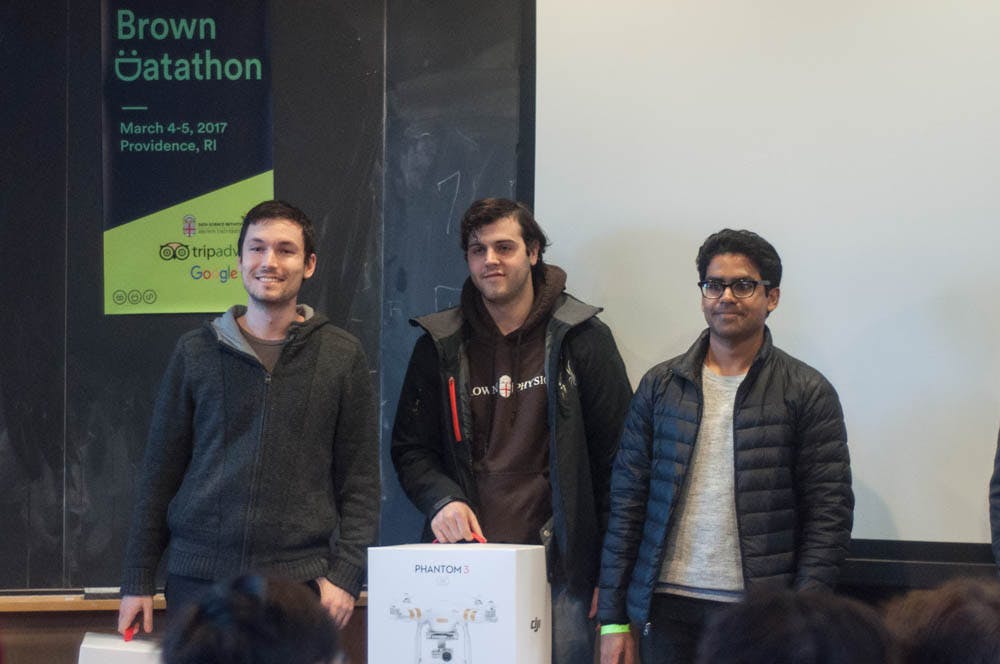College and high school students, general data enthusiasts and hackers alike came together this weekend to learn and work overnight in the University’s 2017 Datathon.
A datathon is “a hackathon with datasets,” said Tanay Padhi ’17, one of the head organizers of the event. “We want to get more and more students some sort of platform where they can start working on problems involving data.”
Brown’s Smith-Buonanno Hall was abuzz with activity this weekend as teams labored tirelessly to win the competition, finding new ways to apply data to the real world as they worked. The first day began with a presentation by keynote speaker Marzyeh Ghassemi, a Ph.D. candidate conducting research at the Massachusetts Institute of Technology Computer Science Artificial Intelligence Laboratory. She delved into the use of clinical data and machine learning in health care. After the talk, students formed teams and began their projects.
Padhi emphasized the autonomy that the teams had in their projects, noting their freedom to use any languages or frameworks they chose. The organizers offered participants data from different sources, including areas like travel, terrorism and health care. Teams could also use external data sources as long as they used at least one provided by the datathon. “What they come up with can be in many different forms,” Padhi said. “They could do literally whatever they want.”
Participants began learning and working with data through workshops offered over the course of the weekend. “We felt like we needed a diverse overview of everything,” said Charlene Wang ’20, the head organizer of the workshops. Some of the workshops aimed to increase the inclusivity of the event, such as one for those who had no background in computer science, she said.
Judges, including University faculty from math, computer science and biostatistics programs and a Google employee, evaluated each team based on a rubric.
“One thing that people did quite well was telling a story with their data,” said Jeffrey Brock, director of the Data Science Initiative and chair of the mathematics department, who acted as one of the judges for the competition. He looked for creativity in the presentations and teams that brought a deeper statistical or methodological knowledge to the table, he added.
“There aren’t many events like this,” Padhi said.
The three winning teams each received a prize: DJI Phantom 3 4K drones for the first-place winners, Bose wireless noise-cancelling headphones for the second place winners and Google Homes for the third-place winners.
The organizers improved upon the smaller datathon they hosted last year, offering more datasets and opening up the event to students outside of Brown. The team received a total of 540 applications, and 180 of the selected applicants attended, Padhi said. Seventy of these applicants came from other schools, including Yale, the Massachusetts Institute of Technology, Princeton, Bucknell University, Harvard and local high schools.
The datathon organizers decided to host a weekend-long event instead of coordinating semester-long endeavors so they could provide participants with the resources they needed to work on their projects, such as space, food and data.
Padhi hoped that students would leave the datathon with a sense of confidence that they can approach any dataset and understand how to analyze it and use it to answer questions.





